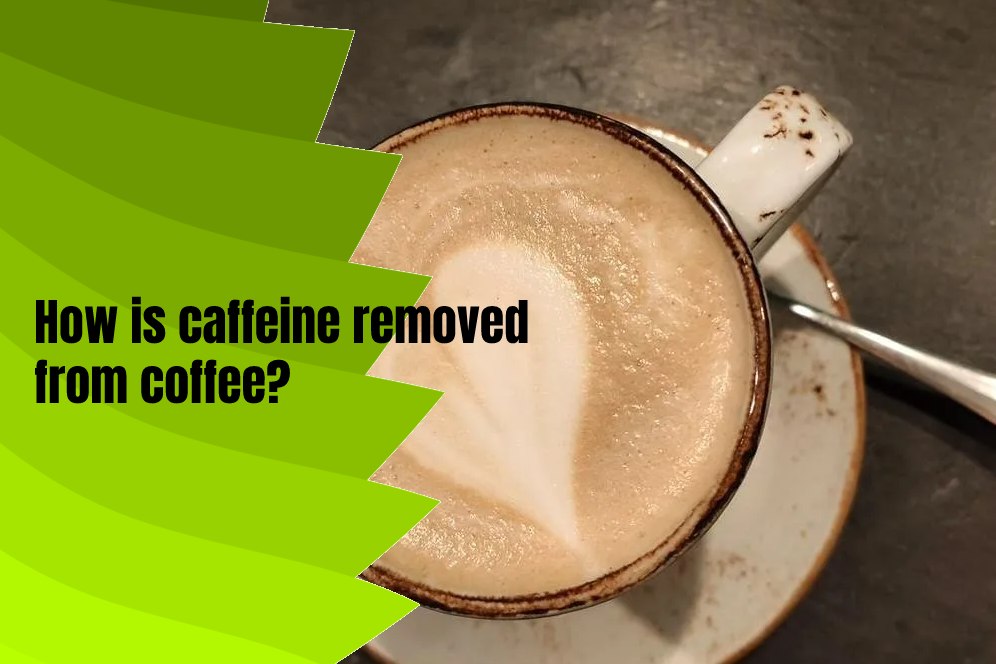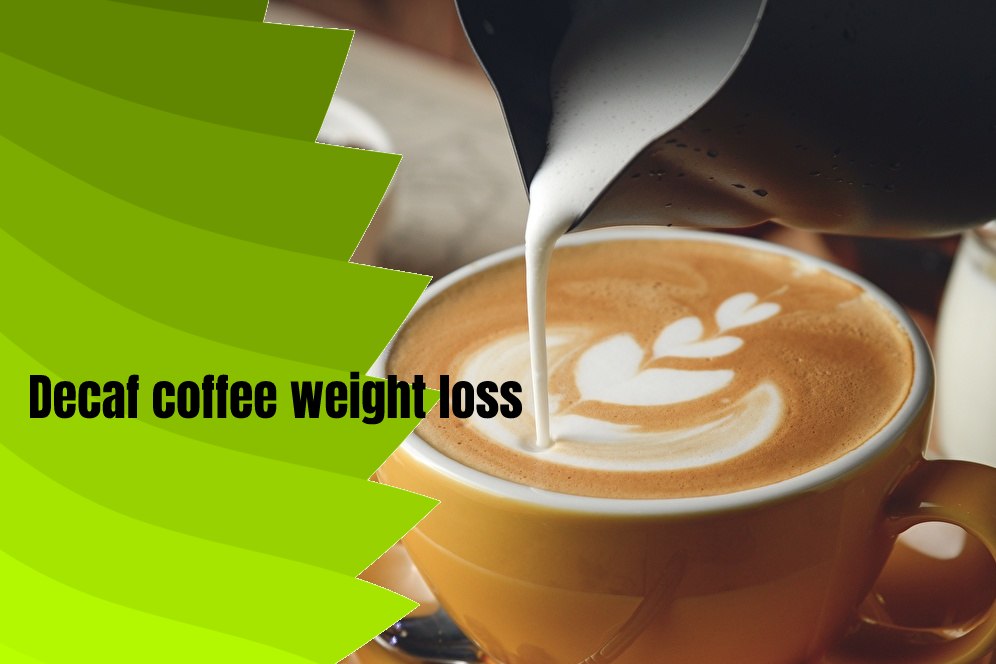The Benefits Of Decaffeinated Coffee Range [Improving Liver Function & Weight Loss]

ome people have chosen coffee as the main drink, but because of the large amount of caffeine that enters the body by drinking coffee several times during the day, they seek to prepare coffee that does not contain caffeine. But it is necessary to check whether such coffee exists and whether caffeine coffee is good for the body or not. This article answers all your questions about caffeinated body coffee. So please be with us.
Contents
- 1 How to make decaffeinated coffee
- 2 The History of Caffeine Removal from Coffee Beans
- 3 How is decaffeinated coffee different from regular coffee?
- 4 Benefits of decaffeinated coffee
- 5 Disadvantages of decaffeinated coffee
- 6 How is caffeine removed from coffee?
- 7 Caffeine-Free Coffee is Better Tolerated!
- 8 Arabica Coffee is the Best Decaffeinated Coffee!
- 9 All the Facts About Decaffeinated Coffee
- 10 Decaf coffee weight loss
- 11 Does decaffeinated coffee keep you awake?
- 12 What does decaffeinated coffee taste like?
- 13 Decaffeinated coffee during pregnancy
- 14 Non caffeinated coffee
- 15 Percentage of caffeine in decaf coffee
How to make decaffeinated coffee
Decaffeinated coffee is made from coffee beans, but much of the caffeine is lost during the roasting process. The appearance of decaffeinated coffee is no different from regular coffee.
To make decaffeinated coffee, you have to put the coffee beans in a substance before roasting and powdering it to remove the caffeine, which is called the decaffeination process. To do this, you have to expose the coffee beans to steam and then use a substance called benzene in water and put the coffee beans in it.
In the second method, the coffee beans are placed in boiling water, and then the beans in the water are passed through a carbon filter to absorb the caffeine in the coffee from the carbons. This process must be done several times. This method is very simple and preserves the taste and smell of coffee.
It is better not to use chemicals to remove caffeine from coffee because clinical studies have shown that these substances are carcinogenic and damage the body’s nervous system, Therefore, it is recommended to use the process of placing coffee beans in boiling water.
In the following, we will refer to the decaffeination stages of coffee.
The History of Caffeine Removal from Coffee Beans
The process of caffeine removal was invented by Ludwig Roselius of Bremen at the beginning of the twentieth century. Caffeine was extracted from the beans using a saltwater and benzene solution. Since benzene is now recognized as a carcinogen, other methods and solvents have been developed to remove caffeine from the beans.
If a decaffeinated coffee is labeled as organic, you can be sure that no chemical solvents were added to the coffee during the caffeine removal process, and you can enjoy it without any health concerns!
The beginning of decaffeinated coffee
A man from Bremen named the melodious-voiced Ludwig Roselius is considered the father of decaffeinated coffee. Ludwig was convinced that the cause of his father’s death was excessive caffeine consumption due to coffee. With a personal motivation to enjoy a delicious hot beverage without a stimulant, Ludwig sought a way to produce caffeine-free coffee.
This led to the development of the first commercial process used in the early 20th century. In this method, green coffee beans, not yet roasted, are swelled in a saline solution. Using this process, caffeine can be extracted before roasting.
What Ludwig Roselius didn’t know was that this process was much more harmful than caffeine itself, as it involved the chemical benzene. Fortunately, today there are more advanced and entirely safe methods for creating truly delicious decaffeinated coffee!
How is decaffeinated coffee different from regular coffee?
Decaffeinated coffee is not really decaffeinated and contains a percentage of caffeine. Therefore, it should be called low-caffeine coffee. In the process of removing caffeine from coffee, if this process is done correctly and correctly, it eliminates almost 95% of the caffeine in coffee.
When there is a very small percentage of caffeine in coffee, you no longer have to worry about the number of cups of coffee you consume during the day. Instead, you can consume coffee more safely because consuming too much coffee during the day will no longer have the side effects of consuming too much caffeine. Of course, decaffeinated or decaffeinated coffee may be milder in taste and smell than decaffeinated coffee.
Of course, decaffeinated coffee has the same properties as regular coffee, and by consuming it, you get all the antioxidants in coffee. The only substance that does not enter the body is caffeine. If you suffer from gastroesophageal reflux disease, decaffeinated coffee is the best option.
You will not feel heartburn or pain when drinking decaffeinated coffee. Some people are also allergic to caffeine and develop respiratory problems and acne on the face. Eliminating the caffeine in coffee helps these people to consume this drink without worry.
Benefits of decaffeinated coffee
The benefits of decaffeinated coffee are greater for people who have chosen coffee as their main beverage than regular coffee. Decaffeinated coffee has all the benefits and properties of coffee. Decaffeinated coffee has the following positive effects on the body:
- Strengthen memory and increase the level of brain function, one of the results of which is the prevention of Alzheimer’s
- Prevent cancer due to the presence of antioxidants in coffee
- Prevention of liver disease due to the elimination of toxins from the body and cleansing the liver.
- Relieve the feeling of tiredness and create vitality
- Prevent damage to the teeth because caffeine causes tooth decay
- Pregnant women can use decaffeinated coffee
Disadvantages of decaffeinated coffee
Caffeine is not a substance that can be completely eliminated to make coffee a healthy beverage. It only prevents the side effects of high caffeine consumption. If you do not use caffeine at all during the day, you will not harm your body, you will only be deprived of its positive effects, such as being happy or relieving fatigue.
In fact, the positive effect of coffee consumption in maintaining the health of the body and preventing diseases is related to the antioxidants in it, and caffeine has little role in this regard.
Of course, it is good to know that if you are looking to lose weight by consuming coffee, decaffeinated coffee will not bring you closer to your goal because caffeine reduces appetite.
What are the symptoms and causes of coffee allergy? Reading this article is recommended.
How is caffeine removed from coffee?
Caffeine can be removed from coffee using several methods, including:
Solvent-based method: In this method, the green coffee beans are soaked in a solvent, such as methylene chloride or ethyl acetate, which extracts the caffeine from the beans. The solvent is then removed from the coffee, leaving behind decaffeinated beans.
Water-based method: This method uses hot water to extract the caffeine from the beans. The caffeine-rich water is then passed through activated carbon filters, which trap the caffeine molecules. The decaffeinated water is then returned to the coffee beans, which reabsorb the flavor compounds.
Carbon dioxide (CO2) method: This method uses pressurized carbon dioxide to extract caffeine from the coffee beans. The CO2 is compressed until it becomes a liquid, which is then used to soak the beans. The caffeine dissolves in the CO2, and when the pressure is released, the CO2 returns to a gas, leaving behind decaffeinated coffee beans.
Swiss Water method: In this method, the coffee beans are soaked in hot water to extract caffeine and flavor compounds. The resulting water, which contains caffeine and flavor compounds, is passed through activated carbon filters, which trap the caffeine molecules. The decaffeinated water is then used to soak a new batch of coffee beans, which absorb the flavor compounds without the caffeine.
These methods all have different advantages and disadvantages, and some are more environmentally friendly than others. The method used to decaffeinate coffee varies depending on the coffee producer’s preferences and the market demand.
Caffeine-Free Coffee is Better Tolerated!
Caffeine stimulates the central nervous system, increases heart rate, constricts blood vessels, and raises blood pressure. Anyone who tolerates caffeine becomes more alert and focused as a result. However, if there is an excessive intake of caffeine or caffeine intolerance, the effects can be negative: tremors, sweating, tachycardia, and stomach problems can be the result. Therefore, for individuals with high blood pressure, heart problems, and sensitive stomachs, decaffeinated coffee can be recommended!
Arabica Coffee is the Best Decaffeinated Coffee!
Arabica beans have less caffeine content compared to Robusta beans. Therefore, Arabica coffees are more suitable for decaffeinated options. They require less washing to remove caffeine.
All the Facts About Decaffeinated Coffee
Even decaffeinated coffee still contains a small amount of caffeine. Unfortunately, chemically, it’s not possible to extract all the caffeine from the beans. Decaffeinated coffee may contain up to 0.1% caffeine. For comparison, a regular coffee bean can contain between 0.8% to 4% caffeine.
Our recommendation: Use organic decaffeinated coffee! The reason is that chemical solvents are not used here. Instead, the CO2 method is usually employed.
However, the cultivation of caffeine-free coffee plants, experimented with in Brazil and Japan, maybe the best of all production processes. In fact, in 2004, scientists discovered caffeine-free Arabica beans in Ethiopia.
Decaf coffee weight loss
Decaf coffee can potentially aid in weight loss, but it’s not a magic solution on its own. Drinking decaf coffee in moderation may help you lose weight as it can boost your metabolism and decrease your appetite, but it won’t work unless it’s combined with a healthy and balanced diet and regular exercise.
Decaf coffee contains caffeine, but in smaller amounts than regular coffee. Caffeine can stimulate your metabolism, which can help you burn calories faster. Additionally, decaf coffee has been shown to reduce appetite and increase feelings of fullness, which can lead to consuming fewer calories throughout the day.
However, it’s important to note that adding excessive amounts of sugar or cream to your decaf coffee can cancel out any potential weight loss benefits. Also, it’s crucial to maintain a balanced and healthy diet and regular exercise routine to see significant weight loss results.
In summary, decaf coffee may help with weight loss when combined with a healthy diet and exercise routine, but it’s not a miracle solution on its own.
Does decaffeinated coffee keep you awake?
Caffeine is the main factor in creating vitality and relieving fatigue due to coffee consumption. So do not try to relieve the feeling of tiredness by removing caffeine from coffee. Because decaffeinated coffee has no effect on keeping the brain awake for more activity.
read more: Effects Of Drinking Coffee In Ms
What does decaffeinated coffee taste like?
Of course, the taste of decaffeinated coffee is different from regular coffee, and in fact, by removing caffeine, the smell and taste of coffee become milder. Of course, decaffeinated coffee does not completely change the taste, but if for any reason you prefer to remove caffeine from coffee, it is good to know that the taste of decaffeinated coffee is still attractive and pleasant. If you feel that caffeine coffee does not taste good, you can add cinnamon and honey to make it taste better.
Is Decaf coffee good for your liver?
Decaf coffee is generally considered safe for your liver. Studies have shown that drinking decaf coffee may even have some health benefits, such as reducing the risk of liver disease and liver cancer. However, it is important to note that too much caffeine can be harmful to your liver, so it is best to limit your intake of regular coffee.
Decaffeinated coffee during pregnancy
What prevents pregnant women from consuming coffee is the caffeine in coffee. Because the entry of caffeine into the body of the fetus has destructive effects on the heart system and even according to research, it can be effective in overactive babies in the future. In addition, it may cause allergic reactions to caffeine in later years. Caffeine consumption during pregnancy can pose risks such as miscarriage, even to the mother.
If you are pregnant and want to drink coffee, decaffeinated coffee is the best option. But during pregnancy, if you have a history of heart disease or allergies, it is better to consult a doctor because, as mentioned, coffee is not completely decaffeinated and in any case, a percentage of caffeine is still in it.
To know the harm of drinking coffee during pregnancy and breastfeeding, read this article.
Non caffeinated coffee
Caffeine-free coffee is coffee made from coffee beans that have had the caffeine removed. It is made using a process called decaffeination, which removes the caffeine from the beans while preserving their flavor and aroma. Caffeine-free coffee can be brewed just like regular coffee, but it will not contain any of the stimulant effects of caffeine.
Percentage of caffeine in decaf coffee
Decaf coffee typically contains between 0.1% and 0.4% caffeine by weight.
Does decaf coffee decrease appetite?
Decaf coffee may not decrease appetite, but it may help reduce cravings for sugary snacks. Caffeine has been shown to increase appetite, so drinking decaf coffee may help reduce cravings for unhealthy snacks. Additionally, the antioxidants in coffee may help reduce inflammation, which can help reduce hunger.
Is decaf healthier than regular coffee?
Decaf coffee does not contain any of the stimulants found in regular coffee, such as caffeine. Therefore, it is not necessarily healthier than regular coffee, as the lack of caffeine does not necessarily make it healthier. However, it does provide a lower-caffeine alternative for those who are sensitive to the effects of caffeine or who want to reduce their caffeine intake.











